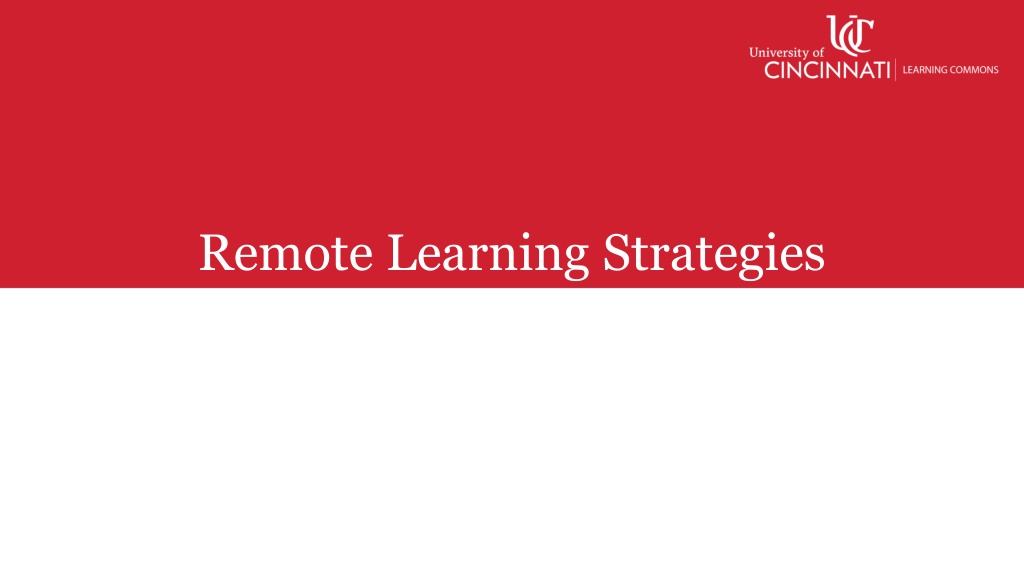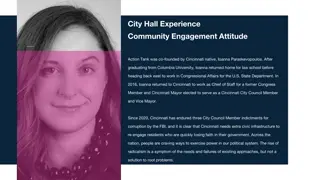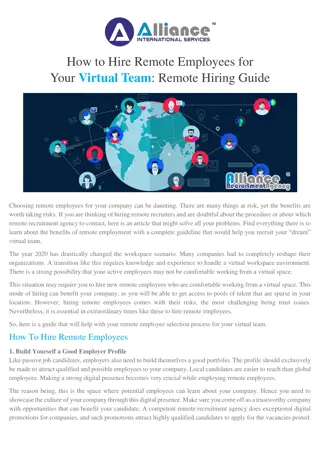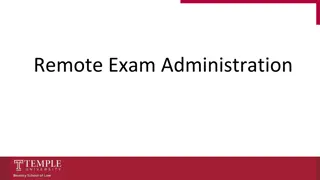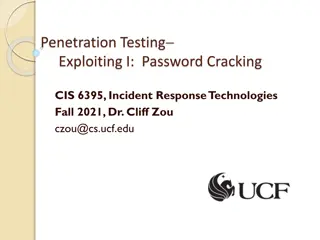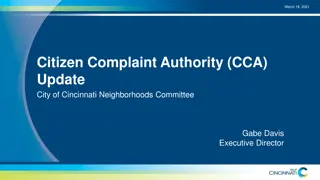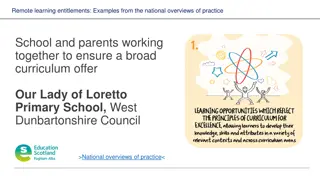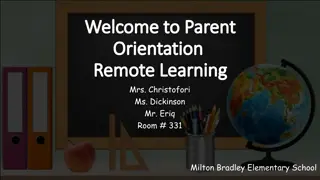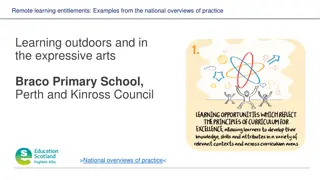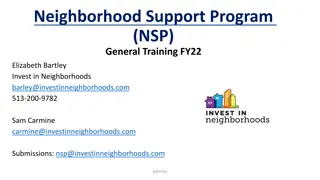Effective Remote Learning Strategies at University of Cincinnati
Remote learning has become an integral part of education at the University of Cincinnati. This presentation highlights key strategies for students to succeed in remote learning, including technology needs, setting up a conducive study space, effective communication with professors and peers, and leveraging resources for online collaboration and engagement.
Download Presentation

Please find below an Image/Link to download the presentation.
The content on the website is provided AS IS for your information and personal use only. It may not be sold, licensed, or shared on other websites without obtaining consent from the author. Download presentation by click this link. If you encounter any issues during the download, it is possible that the publisher has removed the file from their server.
E N D
Presentation Transcript
Introduction Now more than ever before, remote learning is part of students educational experience at the University of Cincinnati. The changes in space and methods of instruction will demand that students employ different learning and study skills. This presentation will cover a number of important strategies that will help prepare you for future remote learning experiences.
Technology Needs One of the first things you need to do is make sure you have the proper technology and the right learning space. When taking a remote learning course, you are effectively designing your own physical classroom, so you can successfully engage with the course content. Access to technology and a reliable internet connection are crucial here. IT@UC further details the technological needs for remote learning at uc.edu/about/ucit/technology-access Naturally, different courses may require different tech. Consult your syllabus and communicate with your professor regarding specific tech needs.
Setting Up Your Space Once you have the right technology, it is important to create the proper learning space. Sure, it would be nice to be in bed and work on your courses, but that is likely not conducive to learning. Work in a place where you can eliminate distractions and have easy access to all your course materials. Remember to take breaks from the screen. Periodically, get up from the desk chair and move around.
Communicating with Professors Communication is one of the most important aspects of remote learning. From the standpoint of your courses, this starts with your professor. If you ever have questions about your course, email your professor. Don t be intimidated. Your professor is here to help you and foster your learning. Ask questions about course concepts and course logistics. If you feel like a dialog would be helpful, set up a phone/video conference meeting. Please be patient when emailing your professor. Many UC professors are working with literally hundreds of students. It may take a few days to receive a response, but don t be afraid to follow up.
Communicating with Peers Your classmates can also be important resources. Email specific classmates if you have questions that they can answer. Many classes will have a general discussion board for questions to the group. Set up online group study times to work together. Be an active participant in class. This holds true in face-to-face courses as well, but in remote learning, being an active participant can be more challenging. Regardless of the medium of communication, participate in class discussions.
Making a Schedule Planning is essential. Develop a working calendar for the entire week. Keeping to a routine can help you structure your day. Keep important assignment deadlines in mind and build your learning/study time around them. Know what course activities you are doing and when you are doing them. Key tip: A Learning Commons Academic Coach can help you create that plan: uc.edu/learningcommons/academiccoaching
Time Management Time management is challenging regardless of the environment. However, in remote learning courses, proper time management often possesses new dimensions. Don t wait until the last minute to complete assignments. Think about a face-to-face class. Usually, every MWF or T/Th, you are given a piece of a larger body of knowledge to learn. If, in an online class, you wait until Friday to learn and do everything, you will probably not be successful. Work on your courses consistently every day. Work on them at the same time each day to build that consistency (e.g., work on your English course every MWF at 2pm).
Use Your Resources Building relationships is an important part of being a successful student. Communicating with your professors and peers is important, but keep in mind that the entire UC community is here to help. Your academic advisor is a crucial gateway to other campus resources. Ask them questions not only about your coursework, but other parts of campus life. Build a support team around you at the start of the term. Your advisor, your professors, study groups, support offices of campus like Accessibility Resources and SALD, and the tutors and peer educators at the Learning Commons can help you throughout the semester.
Conclusion The Learning Commons is available to help you with all phases of the remote learning process from course content assistance to study strategies. uc.edu/learningcommons learningcommons@uc.edu (513) 556-3244 @UCLearningCommons
